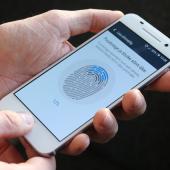-
Google Is Testing A "Panic Button" in Android So Users Can Close Malicious Apps
Starting with Android 7.1, Google has added a so-called "panic button" behavior in its mobile operating system, so users can immediately shut down any app they suspect of being infected with malware.
- July 10, 2017
- 12:10 PM
 2
2
-
LeakerLocker Ransomware Found in Two Apps on the Google Play Store
Google has removed two apps that contained a new strain of ransomware named LeakerLocker. Discovered by security researchers from McAfee's mobile division, the ransomware didn't encrypt users' files, but only locked their device and threatened to send the user's private data to friends from his contact list.
- July 10, 2017
- 05:41 AM
 0
0
-
Researchers Find a Way to Crack Satellite Phone Communications in Real-Time
Two Chinese scientists have come up with a method of decrypting satellite phone communications, which works almost instantly and provides a third-party access to secure conversations in real-time.
- July 10, 2017
- 12:30 AM
 0
0
-
Broadpwn Bug Affects Millions of Android and iOS Devices
Broadcom Wi-Fi chips embedded in Android and iOS devices are vulnerable to a bug that allows an attacker to execute code on their devices, without any interaction needed from the user.
- July 08, 2017
- 03:50 AM
 2
2
-
Highly Advanced SpyDealer Malware Can Root One in Four Android Devices
Security experts have discovered a brand new Android trojan that features a broad range of features that allow it to root Android devices, steal data from over 40 apps, and geo-track phone owners.
- July 07, 2017
- 07:11 AM
 0
0
-
CopyCat Adware Infects Zygote Android Core Process
For the past year and a half, an Android adware family known as CopyCat has infected over 14 million devices, rooted around 8 million, and made over $1.5 million for its owners.
- July 07, 2017
- 04:13 AM
 0
0
-
Koler Android Ransomware Targets the US with Fake PornHub Apps
During the past week, US users visiting adult-themed sites were targeted by ads for a fake PornHub app that contained a version of the Koler ransomware.
- June 24, 2017
- 04:15 AM
 0
0
-
Mozilla Launches Firefox Focus for Android, a Browser with a Built-In Ad Blocker
Mozilla launched today Firefox Focus for Android, a brand new mobile browser for Android that comes with a stripped down minimal interface, a built-in ad blocker, and an always-on "private browsing" mode.
- June 21, 2017
- 12:00 AM
 2
2
-
75 Android Apps Remove Info-Stealing Adware From Their Code
Seventy-five apps available for download from the official Google Play Store had to remove a malicious advertising library that was secretly an adware called AdDown, which Trend Micro researchers have been tracking for the last two years.
- June 13, 2017
- 05:36 AM
 0
0
-
Hackers Can Spoof Phone Numbers, Track Users via 4G VoLTE Mobile Technology
A team of researchers from French company P1 Security has detailed a long list of issues with the 4G VoLTE telephony, a protocol that has become quite popular all over the world in recent years and is currently in use in the US, Asia, and most European countries.
- June 12, 2017
- 07:55 AM
 1
1
-
Android Smartphones Targeted by WannaCry Lookalike
Crooks in China have developed an Android ransomware that uses similar graphics to the WannaCry ransom note in an attempt to scare and trick users into quickly paying the ransom.
- June 08, 2017
- 04:20 PM
 0
0
-
Google Removes App Infested with New and Deadly DVMap Trojan From the Play Store
Google's security team removed an Android app named "colourblock" from the official Play Store after security researchers from Kaspersky Labs discovered a dangerous trojan hidden inside it.
- June 08, 2017
- 10:08 AM
 1
1
-
Self-Downloading Android Malware Target Users in the US, UK, and France
A malvertising campaign detected on a popular forum is forcibly downloading an Android app on users' devices, which later installs a second app with more intrusive features and which is almost impossible to remove without flashing the user's phone.
- June 07, 2017
- 08:00 AM
 1
1
-
Google Publishes List of 42 Phones Running Latest Android Security Updates
Google published yesterday a list of 42 smartphone models from 12 vendors that run up-to-date Android OS versions with the latest security patches applied.
- June 02, 2017
- 05:50 AM
 1
1
-
Backend Servers for 1,000 Apps Expose Terabytes of User Data
There are 1,000 apps available for download today that despite not containing any malware or featuring glaring vulnerabilities, they communicate and store data on improperly secured backend servers, exposing user data along the way.
- May 31, 2017
- 06:25 PM
 0
0
-
Google Boots 41 Apps Infected with "Judy" Malware off the Play Store
Google has removed 41 Android apps from the official Play Store. The apps were infected with a new type of malware named Judy, and experts estimate the malware infected between 8.5 and 36.5 million users.
- May 26, 2017
- 02:55 PM
 0
0
-
Android Users Tricked Into Installing Malware Via "App-For-Money" Scheme
An eight-month-long investigation by Roman Unuchek, a security researcher at Kaspersky Lab, has uncovered one of the most complex malware distribution schemes seen to date on the Android malware scene.
- May 24, 2017
- 07:15 PM
 2
2
-
Samsung Galaxy S8 Iris Scanner Fooled by a Photo
A photo of a person's eye taken at a medium distance is more than enough to trick a Samsung Galaxy S8 smartphone, according to researchers from the Chaos Computer Club (CCC).
- May 23, 2017
- 04:03 PM
 0
0
-
OnePlus Smartphones Vulnerable to OS Downgrade Attacks
Almost all recent OnePlus smartphones are vulnerable to attacks that can downgrade the phone's operating system and expose the device to previously patched security flaws.
- May 12, 2017
- 05:15 AM
 0
0
-
Researchers Use Digitally Created Fingerprints to Unlock Smartphones
A team of researchers from the Tandon School of Engineering at the New York University has created a method of generating fake digital fingerprints capable of unlocking random smartphones.
- May 11, 2017
- 05:30 PM
 0
0


























